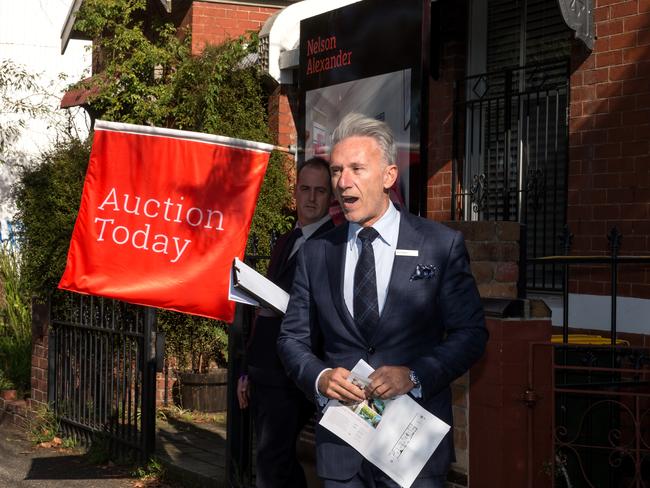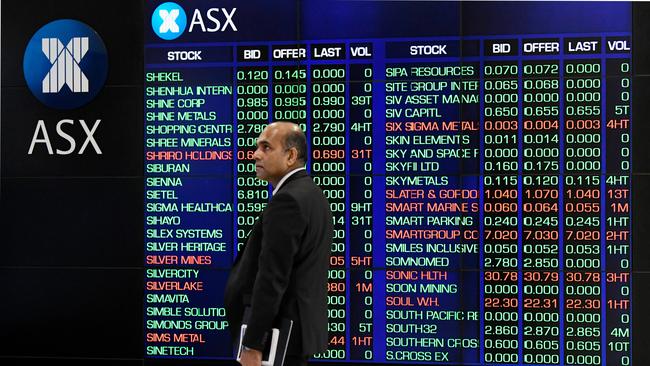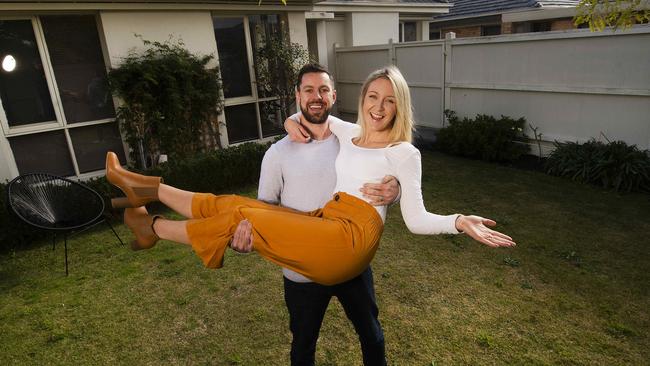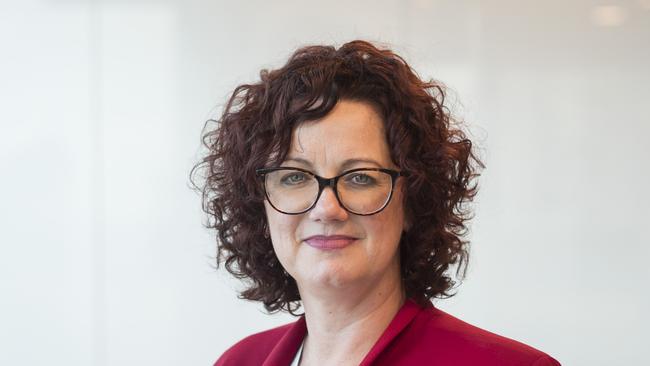From property prices to household bills: What Aussies can expect in new financial year
It’s been a tumultuous financial year for Aussies, and the next is shaping up to be another rollercoaster ride. Here’s what to expect.

Business
Don't miss out on the headlines from Business. Followed categories will be added to My News.
Many Australians will be pleased to see the tumultuous financial year come to an end and are now bracing themselves for a fresh start to 2020/21.
The country is ending the year in a recession, with unemployment at 7.1 per cent, a cash rate at just 0.25 per cent and inflation at 1.75 per cent.
While the past few months have left the nation’s economy bruised and battered, we have asked the experts what to expect in the next 12 months.
PROPERTY
This month Australian house prices recorded their first month-on-month fall in a year, with the national index down 0.4 per cent.
However CoreLogic data found national house prices rose by 8.3 per cent annually to an average price of $558,000.
Realestate.com.au chief economist Nerida Conisbee said in the next 12 months we wouldn’t see “runaway growth”.
“The market has been remarkably resilient and is probably one of the big surprises when we look at established housing,” she said.
“It’s remained far more stable in an environment when we have rising unemployment and a recession.”

Hundreds of thousands of Australians have taken up mortgage payment holidays, many of which are due to expire in September. This could also impact house prices if people can no longer afford to pay off their debt.
“We may see an increased number of properties for sale because people can’t pay them off, particularly investment properties where demand is weak,” Ms Conisbee said.
SHARES
The Australian sharemarket is ending the financial year at about 6060 points (down 9.4 per cent) and CommSec’s chief economist Craig James said there will “be no easing of the volatility anytime soon”.
“We have had a significant decline to the sharemarket compared to back on February 20 when the ASX200 was 7162.5, but it dramatically fell to just 4500 points in March and we’ve had the recovery since,” he said.
“There are plenty of risks that lie out in the environment including COVID, whether you have second waves of infection, also the political relationships with China and the US election.”

Mr James said he expected the All Ords would be around 6100 to 6400 by December this year.
“We have a modest upward expectation but are taking the view there could be setbacks in the recovery process in the next couple of months,” he said.
This means there will continue to be volatility in both the domestic and international sharemarkets.
This could lure in those wanting to buy stocks, but is not for good for those wanting to offload stocks.
MORTGAGES
Many mortgage interest rates are down as low as 2.09 per cent and borrowers should expect to see these low-rate deals stay for some time yet.
Mortgage Choice broker Tim Leonard said “every single owner occupier in Australia should have a two in front of their home loan rate.
“It potentially is the best time to fix a home loan but if you fix you should fix a portion and leave a portion variable,” he said.
He also expects some lenders to drop their rates below two per cent.
Bryan Dignam, 32, and his wife Aisling, 31, recently purchased their first home – a two-bedroom townhouse for $895,000 in Bentleigh, in Melbourne’s southeast.

The newly-married couple had a 15 per cent deposit saved up and have signed up to a mortgage with Bank of Melbourne.
They are paying a variable rate of 2.79 per cent.
“We decided to go variable upfront however we were told we could always change to 50/50 fixed and variable once we settle into the house,” Mr Dignam said.
“It’s great to be on the property ladder and the goal is to get the mortgage paid off as quickly as we can.”
UTILITIES
Depending on where you live prices on electricity and gas bills vary but comparison website Canstar Blue’s spokesman Simon Downes said the outlook for the next 12 months was good.
“There’s a general trend of rates coming down across the country,” he said.
“With electricity prices set to change in most areas from July 1, the regulated default tariffs in most areas are on the way down.
“This is good news for all types of energy customers but especially for those who shop around online.”
Mr Downes urged Australians to check their utility cost for gas and electricity and to pick up the phone to get a better deal.
“Make sure you check your energy rates after July 1 to see if you’re benefiting from the downward trend of wholesale costs,” he said.
“If your retailer doesn’t cut prices, it’s time to leave.”
As for telcos, most phone and NBN prices have “bottomed out” Mr Downes said but many will be weighing up which internet connection is fastest and cheapest.
“Households also have a big decision to make in the coming months when it comes to whether they want to connect to, or maintain, their NBN connection,” he said.
“With lots of mobile broadband, home wireless and 5G alternatives becoming widely available, the need for fixed-line internet is reducing.”
SUPERANNUATION
The superannuation industry has seen more than 2 million Australians access their retirement savings early and the opportunity to access another $10,000 will reopen from July 1.
The Australian Institute of Superannuation Trustees’ chief executive of Australia Eva Scheerlinck said this should only be done as a “last-resort measure as it will have a significant impact on your retirement nest egg”.

The compulsory superannuation rate is also due to rise on July 1 2021, from 9.5 per cent to 10 per cent – the first rise in eight years.
“For a worker earning $60,000 a year, this rise will boost their super savings by $300 a year, or just under $6 a week,” she said.
However there’s been recent debate by politicians in Canberra saying this rise should be delayed with concerns many businesses will struggle with the increase as they navigate their way out of the pandemic.
She also warned people against switching their investment options during a volatile time.
“Members who change to more conservative investment options, such as cash, during times of high volatility and market downturns, often miss out on the market rebounds,” Ms Scheerlinck said.
“We saw this happen earlier in the year, when some people switched in March and missed out on April gains.”

